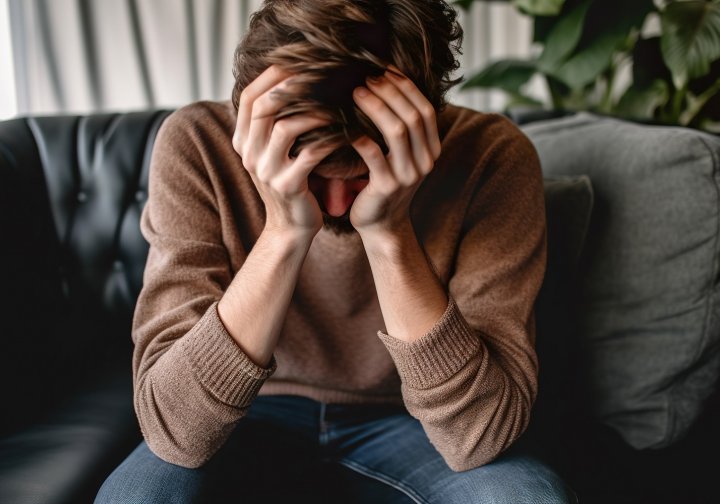Understanding Mental Health Leave: An Essential Guide
Mental health is a crucial aspect of overall well-being, yet it often remains overlooked in conversations about work-life balance. Mental health leave enables employees to take necessary time off for mental health reasons, allowing them to focus on their well-being and seek treatment if needed. This leave differs from standard sick leave, reinforcing the idea that mental health is as critical as physical health. In this article, we will explore the essentials of mental health leave, including its definition, application process, legal framework, and its significance for both employees and employers.
What is Mental Health Leave?
Mental health leave refers to the time employees can take off work specifically for mental health reasons. This form of leave empowers individuals to prioritise their mental well-being—be it through attending therapy sessions, practicing relaxation techniques, or engaging in self-care. By providing a supportive environment for employees to seek needed help, mental health leave aims to foster a healthier workforce and reduce the stigma surrounding mental health issues. To apply for a mental health leave certificate you can visit OnCare Health
The Legal Framework Surrounding Mental Health Leave
While Australia lacks specific legislation dedicated solely to mental health leave, the framework for such leave is outlined within the National Employment Standards (NES) established under the Fair Work system. These standards require employers to offer reasonable and flexible leave options, with personal leave encompassing mental health circumstances. According to the Fair Work Act 2009, employees are entitled to a maximum of 10 days of paid personal leave each year, which includes leave for mental health purposes. For in-depth information about mental health leave policies in Australia, consider checking out [OnCare Health’s comprehensive guide](https://oncarehealth.com.au/about-mental-health-leave/).
How to Apply for Mental Health Leave
If you’re considering applying for mental health leave, it’s essential to know the steps involved in obtaining a certificate for absence from work. The Fair Work Ombudsman outlines that employers may require evidence, such as a medical certificate, confirming the legitimacy of the leave. Many workplaces now accept online absence certificates issued by healthcare providers, which simplifies the documentation process. Each organisation has its policies regarding requesting mental health leave, and employees should be aware of their employer’s requirements to ensure a smooth return to work after their leave.
The Importance of Well-Being
Mental health leave signifies recognition of the importance of employees’ mental welfare. It encourages individuals to take necessary breaks, ultimately leading to enhanced productivity and a more positive work environment. If you find yourself overwhelmed, anxious, or unable to cope with daily responsibilities, it might be time to evaluate whether taking mental health leave could be beneficial for you. Prioritising self-care enables individuals to return to work feeling rejuvenated and better equipped to handle workplace challenges.
Rules and Regulations under Fair Work 2009
Under the Fair Work Act 2009, employees are entitled to take leave for various reasons, including personal illness, holidays, and community service, among others. Mental health leave falls under personal illness, enabling employees to utilise their sick leave for mental health reasons. The NES outlines minimum standards regarding leave accrual, conditions for taking leave, and responsibilities for both employers and employees during the process.
Accumulation of Sick Leave for Mental Health Needs
Sick leave can accumulate and be used for mental health purposes. Understanding your annual sick leave entitlement can assist in planning for your mental health needs. Full-time employees are eligible for up to 10 days of paid sick leave each year, with part-time employees receiving a pro-rata amount. It’s wise to keep track of your leave utilization and remaining balance, particularly if you anticipate needing time off for mental health reasons.
Do Unused Sick Leave Expire?
Unused sick leave does not expire; rather, it continues to accumulate over time. This accumulation commences from an employee’s first day on the job and is based on their regular working hours. In the context of mental health leave, this means that employees can build up their sick leave, providing a buffer for future needs. However, it’s important to note that sick leave does not accrue during periods of unpaid leave.
Payment During Mental Health Leave
When taking mental health leave, employees receive payment equivalent to their standard hourly wage for hours taken off work—excluding any overtime, bonuses, or incentive-based payments. This consistency ensures that employees do not face financial hardship while focusing on their mental well-being.
Signs You May Need to Consider Mental Health Leave
Acknowledging when you might need mental health leave is essential. Here are some indicators that you may benefit from taking time off:
- Feeling overwhelmed by daily tasks
- Experiencing severe anxiety or panic attacks
- Coping with depression that impacts job performance
- Managing grief or trauma
If you find yourself in these situations, taking the time for mental health leave could provide the necessary opportunity to address these challenges and return to work ready to thrive.
Frequently Asked Questions about Mental Health Leave
Do You Need Evidence When Applying for Mental Health Leave?
Yes, many employers will request a medical certificate when you apply for mental health leave to confirm the legitimacy of your absence.
Can Mental Health Leave Be Used for Caring for a Family Member?
Generally, mental health leave is intended for personal use. However, some employers may allow flexibility in policies.
Does Mental Health Leave Expire?
No, mental health leave does not expire. Instead, it accumulates and can be drawn upon when necessary.
How Can I Get a Mental Health Leave Certificate from OnCare Health?
Employees can obtain a mental health leave certificate online from OnCare Health conveniently.
Can I Take Multiple Mental Health Leaves in One Year?
Yes, as long as you have enough accrued sick leave, you can take mental health leave multiple times a year.
Privacy Concerns
Protection of personal information is vital when seeking mental health leave. Employees should be aware of their rights regarding confidentiality and feel comfortable discussing their needs with employers without fear of discrimination or stigma.
In conclusion, mental health leave is an essential component of workplace well-being. It allows individuals to step back and prioritise their mental health without compromising job security. Understanding the rules, how to apply, and knowing when to utilise this vital resource can empower employees to take control of their mental well-being and foster a healthier workplace environment.



